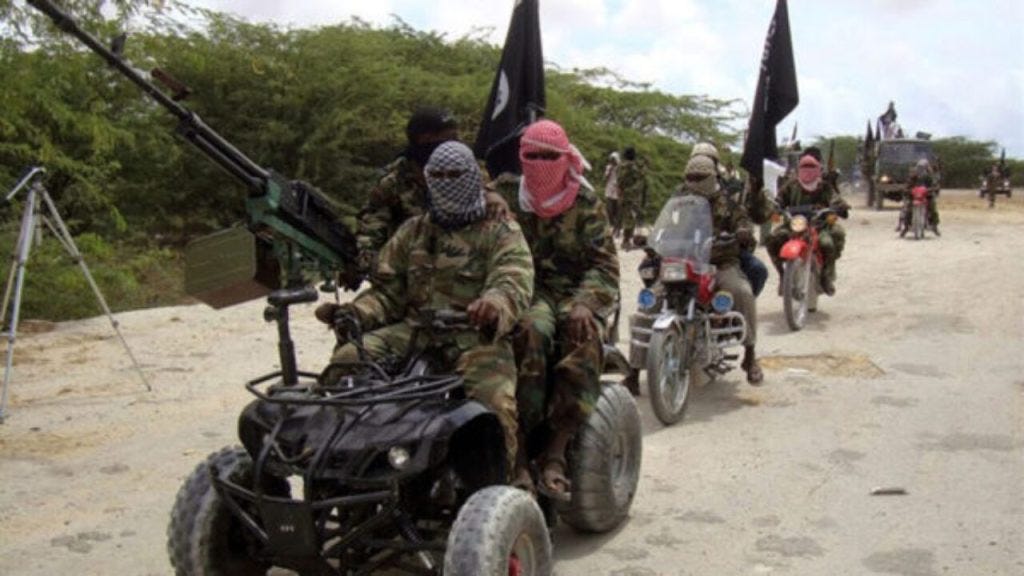Nigeria’s New Terror Attacks: What’s Behind the Surge?
By Temitope Oke
Nigeria’s northeastern region is experiencing a harsh resurgence in terrorists’ violence, with over 100 deaths reported in April alone.
Borno state, in particular, where Boko Haram first emerged 16 years ago, remains at the heart of a conflict that has resulted in more than 40,000 deaths and displaced approximately two million individuals in Africa’s most populous nation.
The Lake Chad basin plays a vital role as a strategic route for terrorists organisations, according to Kabir Adamu, Director of the Nigerian consultancy firm Beacon Consulting, regarding logistics, recruitment, and cross-border assaults involving Chad, Niger, and Cameroon.
Boko Haram, formally known as Jama’atu Ahlis Sunna Lidda’awati wal-Jihad (JAS):
This movement was established in 2002 in Maiduguri, Borno state, by radical preacher Mohammed Yusuf, who claimed that Nigeria’s problems stemmed from the Western influences left by former British colonisers. Boko Haram began its insurgency in 2009 and seized control of significant territories in the northeast.
The Nigerian army managed to reclaim some territories through counteroffensives, but Boko Haram continues to operate in certain areas. The Al-Qaeda-linked group heavily relies on tactics based on instilling fear, targeting civilians, raiding villages, and executing kidnappings.
There is also the Islamic State West Africa Province (ISWAP), which arose in 2016 due to a split within Boko Haram, with ISWAP opposing the killing of fellow Muslims.
It demonstrates greater organisational skills and an ideological approach, concentrating its attacks on military targets and infrastructure.
Other groups are active in the country’s northwest, close to the Niger border, such as Ansaru, a faction associated with Al-Qaeda, or Lakurawa.
Additionally, other groups have emerged, especially in the northwest and central areas of the country, which “may not be purely insurgents but employ similar approaches, causing a blur between criminal and terrorist activities,” according to Adamu.
Experts attribute the ongoing rise in attacks to several factors.
“There were explicit calls from the Islamic State between January and March 2025, urging its affiliates globally to ramp up their operations,” noted Adamu.
Idriss Mounir Lallali, director of the Algeria-based African Centre for the Study and Research on Terrorism (ACSRT), has observed a “strategic recalibration by Boko Haram and ISWAP, as the two groups seem to have overcome a period of mutual conflicts.
The jihadists have adapted their combat tactics through the use of drones, improvised explosive devices (IEDS), ambushes and coordinated raids, allowing them to intensify operations in rural and semi-urban areas.
Efforts at the regional level to combat terrorism in the Sahel and West Africa are encountering inherent structural challenges.
“Governance has been overlooked in many of these regions,” stated Confidence McHarry from SBM Intelligence in Lagos.
In March, Niger pulled out from a joint task force it had established with Nigeria, Cameroon, and Chad to battle jihadists around Lake Chad, which disrupted their ability to conduct cross-border patrols and share intelligence.
“Without a renewed multinational strategy, these gaps could evolve into safe havens for the growth of jihadist groups,” Lallali remarked.
Although Nigerian forces have made territorial progress and have managed to eliminate significant jihadist leaders, both ISWAP and Boko Haram have shown remarkable resilience. Numerous fighters have withdrawn to areas lacking governance.
“While security forces are focused in major garrisons, many border and rural regions remain vulnerable,” Lallali noted.
Insurgents exploit these weaknesses to reestablish supply routes and regain influence among local communities.
At the end of April, Nigeria appointed General Abdulsalam Abubakar as the new head of anti-terrorist operations in the northeast.
Newscentral Television




